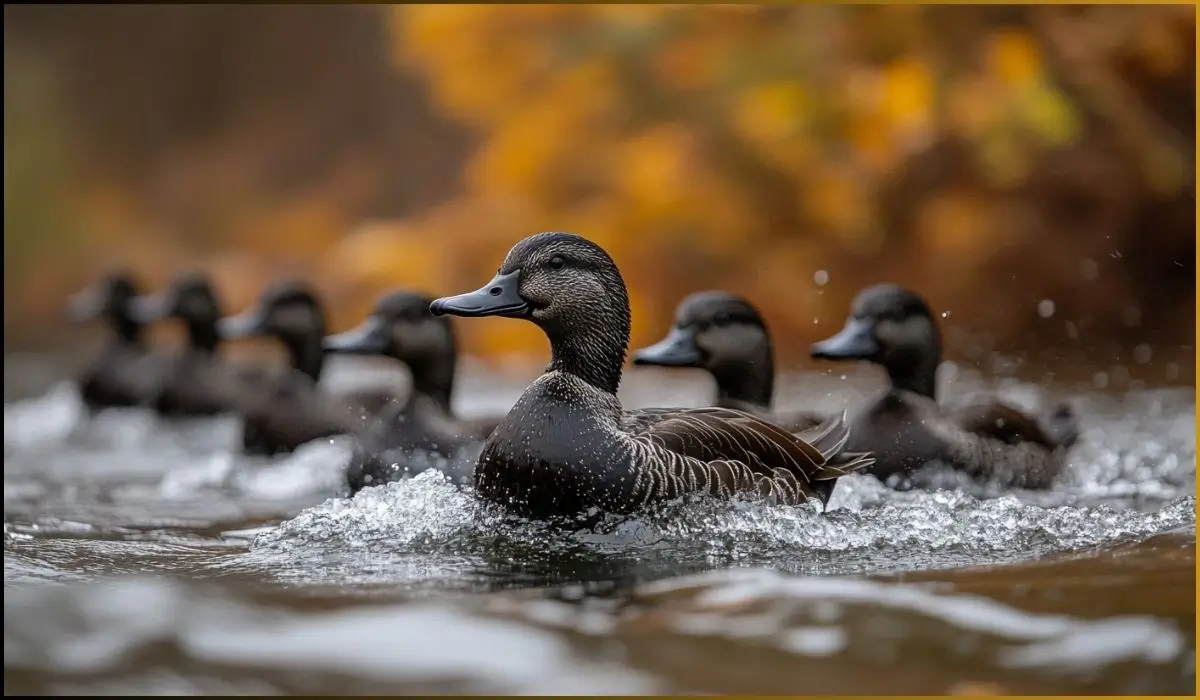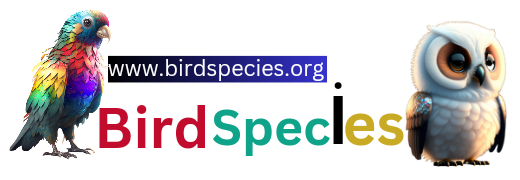
Black Ducks in Michigan are very common during the winter months. These beautiful birds are amazing to watch. They have dark plumage, bright yellow bills, and white underparts. Black ducks are essential to Michigan wildlife and benefit wildlife and people.
Today, we will discover all types of black ducks in Michigan. I will also explain their habitat, how to identify them, and where they are found in Michigan.
Black Ducks in Michigan
I researched all black ducks in Michigan but found that only four black duck species live in Michigan. Here are the four black duck species:
- American Black Duck
- Surf Scoter
- Lesser Scaup
- Black Scoter
Let’s learn about the diet, habitat, identification, appearances, etc.
1. American Black Duck

American Black ducks in Michigan are mainly found in North America. They belong to the family Anatidae. If you ever go there, you can easily see these birds in northern parts of North America, including Michigan.
American Black Ducks can grow up to 20-26 inches. They have black plumage and greenish-black heads. The females have a brown body with a darker brown head.
These black duck species are primarily found in Michigan and Florida during non-breeding season. American Black Ducks breed in the northern parts. They always prefer freshwater wetland habitats such as marshes, ponds, lakes, and rivers.
American Black Ducks are migratory birds that migrate south from Michigan during the winter. These dabbling ducks always feed with their heads down in the water. They eat seeds, insects, aquatic plants, and small invertebrates.
These black ducks in Michigan face many threats. They face habitat loss and climate change, as well as natural danger.
To see these black ducks in Michigan, visit wetland areas like wildlife, state parks, and nature preserves.
Related: Discover 5 Small Diving Ducks in Michigan
2. Surf Scoter

Surf Scoters are another black ducks in Michigan. Their body color makes it easy to identify male and female birds.
| Category | Details |
| Scientific Name | Melanitta perspicillata |
| Size | 18-22 inches long. |
| Weight | between 2 to 3 pounds. |
| Wingspan | 30-34 inches. |
| Habitat | Lakes, bays, and Great Lakes in Michigan |
| Migration | Surf Scoters come to Michigan in the fall and spring |
| Feeding Habits | They dive to eat shellfish, small fish, and insects. |
| Nesting | Surf Scoters don’t nest in Michigan. They nest in the Arctic during summer. |
| Conservation | Surf Scoters are not endangered. |
Males have a black body, while females have a brown body. These birds can grow up to 18 to 22 inches long and weigh between 2 to 3 pounds. These black ducks in Michigan can spend their wingspans up to 30 to 34 inches.
Male Surf Scorers have a white patch on their forehead and a big orange bill. Females have a lighter face and a smaller bill. Surf Scorers always gather in groups during the winter. They love shallow water, where they find their favorite food, mollusks.
To see Surf Scoters in Michigan, visit Sleeping Bear Dunes National Lakeshore, Ludington State Park, or the Straits of Mackinac.
Related: Discover 4 Rare Ducks in Michigan
3. Lesser Scaup

Lesser Scaups are another beautiful black ducks in Michigan. These birds eat plants, seeds, and small creatures and like to live in freshwater.
| Category | Details |
|---|---|
| Scientific Name | Aythya affinis |
| Size | 15-18 inches long. |
| Weight | Between 1 to 2 pounds. |
| Wingspan | 26-30 inches. |
| Habitat | lakes, ponds, and rivers. |
| Migration | They came to Michigan during spring and fall from their breeding grounds in Canada. |
| Feeding Habits | They dive to eat small fish, insects, and plants. |
| Nesting | Lesser Scaup doesn’t nest in Mdoesn’t. They nest in the northern U.S. and Canada during summer. |
| Conservation | Lesser Scaup are not endangered. |
Their primary habitat includes lakes, marshes, and other freshwater areas. During migration, they sometimes visit coastal areas.
Male Lesser Scaup are black and white, while females are brown. You will wonder about these birds’ diving ability.
These black ducks in Michigan can dive for up to 20-25 seconds underwater. The IUCN red list lists these birds as low concern.
If you want to see these black ducks in Michigan, visit Lake Erie, Lake St. Clair, Houghton Lake, Saginaw Bay, Shiawassee National Wildlife Refuge, Nayanquing Point, Fish Point, Harsens Island, Fennville Farm Unit, Muskegon county Wastewater, or Pointe Mouillee State Game Area.
4. Black Scoter

The Black Scoters are deep-black ducks in Michigan. They have black bodies and bills, and the males are silky black.
| Category | Details |
| Scientific Name | Melanitta americana |
| Size | 17-19 inches long. |
| Weight | Between 1.5 to 2.5 pounds. |
| Wingspan | 28-31 inches. |
| Habitat | Large lakes, bays, and coastal waters. |
| Migration | They come to Michigan during spring and fall from their breeding grounds in the Arctic. |
| Feeding Habits | They dive to eat shellfish, small fish, and aquatic plants. |
| Nesting | Black Scoter doesn’t nest in Micdon’t. They nest in the Arctic during summer. |
| Conservation | Black Scoter are not endangered, but their numbers are watched to keep them safe. |
Males also have orange knobs on the bill. Females are brown with a black cap.
Black Scoters in Michigan live near the coast, including the Great Lakes. They dive underwater to find food like mollusks and small fish. During the breeding season, these birds prefer to nest in northern parts of North America.
When the winter comes, they migrate south from their breeding areas. This season, they can be seen on the coasts of the United States.
If you want to see Black Scoters in Michigan, you need to look out of the coast of Lake Michigan or Lake Erie, Sleeping Bear Dunes National Lakeshore, Ludington State Park, and the Straits of Mackinac.
Conclusion
Finally, we can say that these black ducks in Michigan are beautiful and very important for our wildlife. These black birds in Michigan show us how nature can adapt to different environments. If we want to see these fantastic birds in nature, we should protect their habitat for future generations. Let’s protect their home and build a nature-friendly ecosystem in Michigan.


